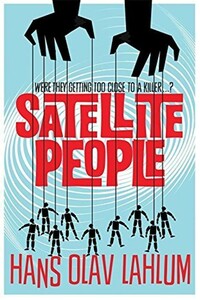The Catalyst Killing | страница 58
I then made a short call to the police security service to arrange a meeting with the head of division in connection with the murder investigation, before getting into my car and heading west.
VI
Frans Heidenberg’s house in Skøyen was the largest in the street, and it was not hard to see that it had been designed by an architect. No other houses had seven walls.
My meeting with Frans Heidenberg himself was a positive surprise. He was a slim, suited man with pale hands and greying brown hair, who wore patent leather shoes at home on a weekday. His steps were slow but steady. His handshake was soft and his voice pleasantly relaxed, with perfect grammar and no accent.
Frans Heidenberg explaned that his name came from his German father, but that he himself had been born to a Norwegian mother in Norway and had lived here all his life. He had had his own architecture firm in Oslo since completing his studies in 1928, and had been increasingly successful in recent years. A couple of nephews were in the process of taking over the business, but he still had an office and worked there one day a week. Otherwise, he spent most of his time here in his spacious and comfortable home.
Once installed in the living room, I declined the offer of alcohol or coffee, but said yes to a glass of water. I remained seated while I reflected that my host appeared to be the perfect diplomat, and about as far removed from a stereotypical Nazi traitor as I could imagine.
Paintings from Norway and Germany hung on the walls between the monumental bookshelves, as well as some photographs from Frans Heidenberg’s childhood and youth in the first decades of the century. I looked around discreetly for signs of other inhabitants in the vast house. My host obviously read my thoughts and shook his head apologetically.
‘I am afraid that only I live here, sadly. The house was built towards the end of the 1930s, when my firm had had its first real success. It was built for a larger family that failed to materialize. I never got married. So now I sit here by myself with plenty of space for my books and paintings.’
He took a pensive sip of coffee.
‘A woman did live here with me once upon a time, in the final months of the war. We were engaged and planned to get married in July 1945. So the war ended at what was a very inconvenient time for me and under very unfortunate circumstances. I was, as you no doubt know, absent for a year and a half. And when I came back, she and all her things were gone. I was forty-six years old and for reasons that I am sure you understand, I was not particularly active in the city’s social life in the years that followed. And there you have it. I gave up any hope of having a family and ceased to be politically active. All my time was given over to saving the firm, which was in a very precarious situation following my absence.’




